Fallen Grape Wine Co.
Château Brane-Cantenac
Grand Cru Classé en 1855 Margaux Red Bordeaux Blend 2005
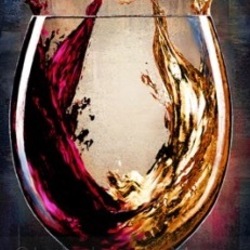
Matchbook Wine Co.
Tinto Rey Dunnigan Hills Tempranillo Blend 2010
I liked this wine so much I dug out the receipt afraid I had opened something expensive. I was amazed at the price point (12.99) for this wine. It is a blend w/Tempranillo being the dominant grape. It has the dry, earthy taste u associate with much more expensive wines and a very smooth finish. — 10 years ago
Banyan
Monterey County Gewürztraminer 2014
Banyan is a label belonging to Hobo Wine Co meant to introduce a line of wines that pair more friendly with Asian cuisine. Gewürtztraminer (spicy Traminer) is a pink grape that makes an aromatic, opulent fruity wine. Expect the Monterey county fruit to provide more texture and ripeness than its Germanic counterparts.
#Gewürztraminer #banyan #hobowineco #california #wine — 10 years ago
Bedrock Wine Co.
The Bedrock Heritage Sonoma Valley Red Blend
20+ grape varietals in this beauty. Subtle, herbaceous nose. Fruit is balanced well by a savory full bodied taste. Love it. — 11 years ago
Mer Soleil
Silver Unoaked Santa Lucia Highlands Monterey Co. Chardonnay 2011
All steel, can really taste the Chardonnay grape — 11 years ago
Ramey Wine Cellars
Rodger's Creek Vineyard Syrah 2009
“The 2009 Ramey Syrah Rodgers Creek Vineyard… offers up knockout aromatics of blackberry, salted meats, wild herbs, and pepper on the nose. This is followed by a full-bodied, classically styled and structured Syrah that possesses a concentrated, yet elegant feel, integrated acidity, and blockbuster length on the finish.”
- Jeb Dunnuck, The Rhone Report, March 2013
Our Syrahs are grown in the cool climate of the Sonoma Coast, which offers a style reminiscent of the Northern Rhone regions of Hermitage and Cornas. The Rodgers Creek is co-fermented with 9% Viognier and 25% whole grape clusters, leading to aromas and flavors of smoked meat, white pepper, green olive and grapefruit. After two to two and a half years in 100% new French oak barrels sur lies, it is lightly fined with egg whites for greater suppleness and bottled without filtration. — 11 years ago
Portalupi Wine Co.
Shake Ridge Amador County Barbera 2012
Blackberry, raspberry and eucalyptus. Well-made representation of a classic Italian grape variety. — 11 years ago
Cruse Wine Co.
Monkey Jacket North Coast Red Blend
Dad's birthday 2017 from urban grape — 8 years ago
Domaine Jamet
Côte-Rôtie Syrah 2007
If there were ever an archetypical Syrah, Jamet's Cote-Rotie would be a strong candidate. To me this is a pure expression of a classic Northern Rhone Syrah. It is not a single site, but a blend of terroirs, encompassing over 20 sites mostly from hard rock schist bedrock with little to no topsoil. There is NO Viognier in this wine like one might expect from most Cote-Rotie that might have 1-5% co-fermented.
Importantly, there is also a lot less of the oak character that can dominate and overwhelm many Northern Rhone wines. The oak maturation, while not short at 22 months, only uses 15% new oak with no trace of it on the palate as it is perfectly integrated. Grape bunches are whole cluster fermented and macerated for up to 3 weeks.
The 2007 we have here was drinking superbly for a young wine, showing lively and racy layers of peppercorn spice, roast beef, and warm blackberry and currant fruit from the hot 2007 vintage. While from a warm vintage, not a hair is out of place. Density and purity exude from the nose and hint at what a brilliant future this wine has. Perfect acidity and fleshy ripe tannin provide the backbone structure for father time to peel back the layers of this beauty. I will be chceking back in 5 years at the earliest. — 9 years ago
Pithon-Paillé
Mozaïk Anjou Chenin Blanc 2011
i won this wine in a card game against Jeremy Stoppelman, Yelp co-founder and CEO. He called me a motherfucker and threaten to kill my kids, but I won the card game fair and square.
thos wine is pretty good. What can I say, it's a grape wine, the very best. — 9 years ago
Bagg Dare Wine Co.
Well Hung White Blend
Grape flavors! Sweet. More dessert wine but enjoyable — 9 years ago
Oyster River Wine Co.
Villager White
Interesting wine. Pale, pale color. Blend of Seyval Blanc and Cayuga grapes from NY made by a winery in Maine. Love something different. Intriguing mix of green grape and steamer clam broth. Floral notes. Would buy again. — 10 years ago
Cruse Wine Co.
Rancho Chimiles Vineyard Valdiguié
Great grape, Tempranillo like but more fruit forward and lighter. — 10 years ago
Domaine Faiveley (Joseph Faiveley)
Les Clos Chablis Grand Cru Chardonnay
Ok the minerality on the nose is strong and the wine is golden honey to look at. Acidity is moderate palate is strong grape and mango. My co taster is a Col. With US Marines so I have to agree! — 11 years ago
Cruse Wine Co.
Charles Heintz Vineyard Syrah 2013
Soft-handed approach to the grape that mirrors the Valdiguie. Pleasant game and spice--while not overpowering the fruit. Kudos to whatever fine Gentleman that's bringing this to CO. 2013 vintage. — 11 years ago
Ramey Wine Cellars
Sonoma Coast Syrah 2011
"Dark red cherries, plums, new leather, smoke and game explode from David Ramey's 2012 Syrah. Intense and voluptuous to the core..."
- Antonio Galloni, Vinous,
February 2014
Our Syrahs are grown in the cool climate of the Sonoma Coast, which offers a style reminiscent of the Northern Rhone regions of Hermitage and Cornas. The Sonoma Coast is co-fermented with 6% Viognier and 25% whole grape clusters, leading to aromas and flavors of smoked meat, white pepper, green olive and grapefruit, coupled with a silky texture and savory flavor. After a year and a half in barrel sur lies, it is lightly fined with egg whites and bottled without filtration. — 11 years ago
Cruse Wine Co.
Ricci Vineyard St. Laurent
Bay Grape wine club. Smooth blend. Somewhat fruity but not overly so. Balanced sweetness. — 8 years ago
Jorge Ordoñez & Co.
Zerran Montsant Garnacha Blend
40% Mazuelo grape attracted my attention as I knew little of this varietal. A beautiful enrichment if the garancha / Syrah backbone exposes the rich flavors of the region. Another fantastic selection of Jorge Ordonez! — 9 years ago
Bedrock Wine Co.
Montecillo Vineyard Cabernet Sauvignon 2013
Dense purple red in color. Phenol, graphite, smoke, mint, black currant in nose. Mint-spearmint cherry-black currant cough syrup, vanilla, orange marmalade and black pepper in finish with grape seed bitterness and grape skin astringency. Could use at least two more years of aging. — 9 years ago
Foxen
Dry Farmed Tinaquaic Vineyard Chardonnay 2013
This dry farmed Chardonnay from Foxen was part of a shipment, and from a vineyard I always enjoy drinking. Rancho Tinaquaic was a land grant, from Mexico, given in 1837 in which the Tinaquaic vineyard resides. The vineyard is just northeast of Los Alamos. The land grant was purchased by Foxen co-owner Dick Doré's great great grandfather. The Foxen boys typically dry farm these grapes and sometimes the results can be magnificent (e.g. 2007 Cab Franc or 2012 Syrah). Great care must be taken with the dry farmed fruit - the right soil, microclimate, and maintenance - or the grower will be left more raisin than grape. Foxen is one of the few in Santa Barbara county that still practice the craft, and practice it well. ~$37 | #foxen #chardonnay #tinaquaic
On the eyes: Clear, star bright yellow, light stain, med+ tears, no gas/floc.
On the nose: Overripe pineapple, overripe pear, jasmine, and soft cheese with a touch of salty citrus. Med alcohol.
On the tongue: Med+ acid, med tannin, med alcohol, med+ body, buttery in the mouth. Tropical fruits, (think pineapple, guava, and lychee), rounded out with cashew and orange blossom. Nice finish. — 10 years ago
Rock Wall Wine Co.
The Palindrome California Tannat 2013
Tannic dark rabbit hole of flavor. Interesting grape done with good polish in execution. — 10 years ago
Sine Qua Non
Dark Blossom Syrah 2011

Bedrock Wine Co.
Evangelho Vineyard Heritage Zinfandel Blend 2013
Felt like carignan was the dominant grape here, but apparently it's not. Super old vines ; quite interesting stuff--if bigger Cali wines were more like this I'd drink em more. — 11 years ago

Mathilde et Yves Gangloff
La Serene Noire Côte-Rôtie Syrah 2009
Slight floral quality to the edgy sweetness and gorgeous black fruit. I suspect some co-fermentation here (Viognier). Lovely, lively, and lithe on the palate. Plenty of acids here, so this will pair with nearly any meats. Just to reiterate, this is not your typical Paso syrah (no offense), but an elegant rendition of the grape. — 11 years ago
S. Martinelli & Co.
Sparkling Cider
Hints of grape. Consistent. — 11 years ago
La Jota Vineyard Co.
Howell Mountain Cabernet Franc 2005
2005 Cabernet Franc, my husband's favorite Bordeaux grape varietal. — 11 years ago
Jorge Ordoñez & Co.
#2 Victoria Málaga Moscatel
Málaga Spain Jorge Ordonez & Co. 2011 Victoria Moscatel Dulce 6/13 $28 drank 12/24/13. High concentration 15 lbs best grape clusters to make 375ml Long tropical fruits favors make it an ideal pairing w cheese, foie-gras or sweet desserts. Serve chilled — 12 years ago



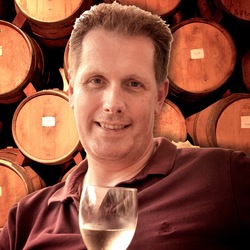




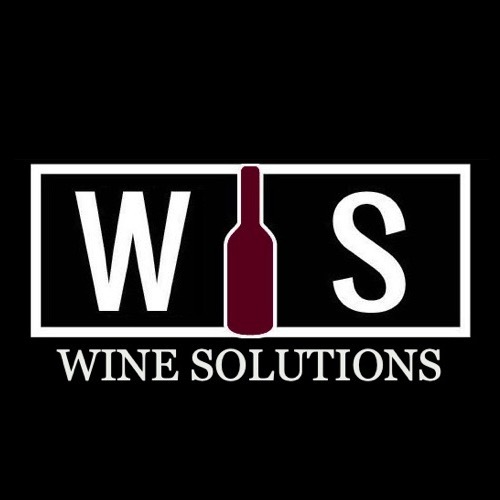
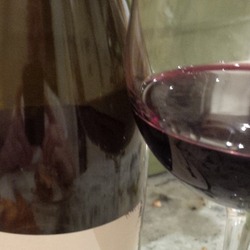

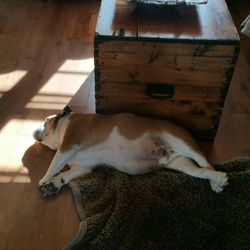








Somm David T
Independent Sommelier/Wine Educator
I have a six-pack of this 05. I thought after 10 years in bottle, it would be interesting to check in on its evolution. While tasty, I’ll wait another 8-10 to open another. Even after 2-3 hours in the decanter, it’s still a very young adolescent. On the nose, slightly sour blackberries & dark cherries, dark currants, baked black plum, haunting blue fruits, anise, whiff of spice, steeped tea, dry stones, dry crushed rocks with dry top soil, caramel, vanilla with fresh & dry red florals. The body is thick & full. Tannins are starting to round out. It’s velvety on the palate. The fruits are; bright, fresh & ripe and really show the greatness of the 05 vintage. Dark currants, blackberries, dark cherries, baked black plum, haunting blue fruits, baked strawberries, cherries, raspberries on the long set, dark spice, clay & loamy dry top soil with crushed rocks, dry stones, cigar with ash, graphite, dry stems, slight herbaceous character, mint, used leather, clove, caramel, vanilla, fresh & dry red florals with violets. The round acidity is about perfect. The structure and length are still strong. The balance is in harmony. As for the long finish, it’s lush, ruby, rich and well polished. Photos of; Chateau Brane Cantenac, large wood vats, Henri Lurton and Estate vines. Producer notes and history...Chateau Brane Cantenac began in the early 17th century. At the time, the estate was known as Domaine Guilhem Hosten. Even that far back, wine was produced from the property. In fact, the wine was so highly regarded it was one of the more expensive wines in Bordeaux. It sold for almost as much money as Brane Mouton. This is interesting because of who went on to buy the vineyard in the 1800’s. The Baron of Brane, also known as “Napoleon of the Vineyards”, purchased the Chateau in 1833. At the time of the sale, the estate was called Chateau Gorce-Guy. To get the funds needed to purchase the Margaux vineyard, the Baron sold what is now called Mouton Rothschild, which was at the time of the sale, known as Chateau Brane-Mouton. Not such a good move with hundreds of years in hindsight! In 1838, the Baron renamed property taking his name and the name of the sector where the vineyards were located and called it Chateau Brane Cantenac. The Chateau later passed to the Roy family, who were well-known in the Margaux appellation in those days, as they owned Chateau d’issan. Moving ahead to 1920, the Societe des Grands Crus de France, a group of merchants and growers that owned several chateaux located in the Medoc including; Chateau Margaux, Chateau Giscours, and Chateau Lagrange in St. Julien, purchased Chateau Brane Cantenac. Five years later, M. Recapet and his son-in-law, François Lurton, took over Brane Cantenac along with Chateau Margaux. Lucien Lurton (the son of François Lurton) inherited Brane Cantenac in 1956. Today, the estate is still in the hands of the Lurton family. Brane Cantenac is owned and run by Henri Lurton. After being given the responsibility of managing Brane Cantenac, it was under the direction of Henri Lurton that large portions of the vineyard were replanted. Vine densities were increased, the drainage systems were improved and the plantings were also, slowly changed. The vineyard of Brane Cantenac is planted to 55% Cabernet Sauvignon, 40% Merlot, 4.5% Cabernet Franc and .5% Carmenere. Carmenere was used for the first time in the 2011 vintage. The only other Chateau I know that still uses Carmenere is Clerc Milon. The 75 hectare Left Bank vineyard of Brane Cantenac is essentially unchanged since it earned Second Growth status in the 1855 Classification. At least that is the case with the 45 hectares used to produce the Grand Vin of Brane Cantenac. Those 45 hectares are planted surrounding the Chateau. Those vines are located just in front of the Cantenac plateau and are the best terroir that Brane Cantenac owns. They have other parcels, which are further inland and much of those grapes are placed into their second wine, Le Baron de Brane. Those additional hectares can be divided into 3 main sections. Behind the Chateau, they have 15 hectares of vines on gravel and sand, 10 hectares across the road with sand, gravel and iron and a 13 hectare parcel with gravel called Notton, which is used for their second wine. The vineyard is planted to a vine density that ranges from 6,666 vines per hectare on the plateau and up to 8,000 vines per hectare for the vines located behind chateau, in their sandier soils. The higher levels of vine density are always found in the newer plantings. The terroir of Brane Cantenac consists of deep gravel, sand and clay soil. Experiments in the vineyards are currently looking at becoming more organic in their vineyard management. Today, more than 25% of Brane Cantenac is farmed using organic farming techniques. It is expected that over time, the amount of hectares farmed with organic methods will be increased. Brane Cantenac has gone through 2 relatively recent modernization’s in 1999, when they added began adding the first of their smaller vats to allow for parcel by parcel vinification and then again in 2015 when they completed a much more complete renovation of their cellars and vat rooms. While Brane Cantenac is a traditional producer, they are no stranger to technology as they were one of the first estates to embrace optical grape sorting machines. In very wet vintages, they can also use reverse osmosis. To produce the wine of Chateau Brane Cantenac, the wine is vinified in a combination of temperature controlled, traditional, 22 oak vats, 18 concrete tanks and 20 stainless steel vats that vary in size from 40 hectoliters all the way up to 200 hectoliters, which allows for parcel by parcel vinification. 40% of the fermentation takes place in the oak vats. The oldest vines are vinified in vats that are selected to allow for separate parcel by parcel vinification. The younger vines are vinified more often together in the same vats. However, the Carmenere is entirely micro-vinified, meaning that those grapes were completely vinified in barrel, using micro-vinification techniques. This can also happen because the amount of grapes produced is so small. Some vats can be co-inoculated, meaning they go through alcoholic fermentation and malolactic fermentation simultaneously. At Chateau Brane Cantenac, malolactic fermentation takes place in a combination of French oak tanks and barrels. The wine of Brane Cantenac is aged in an average of 60% new, French oak barrels for 18 months before bottling. The initial 2 months of aging is done with the wine on its lees, which adds more depth to the wine. There second wine is Le Baron de Brane. Le Baron de Brane is not new. In fact, previously, the second wine went under the name of Chateau Notton, which took its name from one of the main parcels where the grapes were planted. During the late 1950’s and into the 1960’s, having a second wine was important as the estate declassified 3 vintages, due to extremely poor, weather conditions in 1956, 1960 and 1963. Production of Chateau Brane Cantenac is about 11,000 cases per year. — 8 years ago